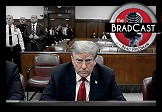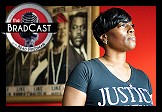READER COMMENTS ON
"Rightwing Opponents of Occupy Wall Street Walk Through its Open Door to Block Progress"
(35 Responses so far...)
COMMENT #1 [Permalink]
...
ghostof911
said on 11/27/2011 @ 8:50 pm PT...
Because of the rampant corruption at all levels of government, supporters of the Occupy movement are understandably suspicious of anyone aspiring to a leadership role. The fear is that anyone given the power of leadership will immediately become corrupted, a fear well grounded in experience.
COMMENT #2 [Permalink]
...
Rick H.
said on 11/27/2011 @ 10:05 pm PT...
Palantir gets a massive fluff job from Bloomberg Businessweek.
Brad, back on 2/14/11:
“Now, as Salon reports, one of their engineers, 26-year old Matthew Steckman, has been placed "on leave pending a thorough review of his actions" in the matter.”
Bloomberg, top of page 6:
“ . . . Palantir’s senior legal adviser, Bryan Cunningham, authored an amicus brief three years ago supporting the Bush Administration’s position in the infamous warrantless wiretapping case and defended its monitoring domestic communication without search warrants. Another event that got critics exercised: A Palantir engineer, exposed by the hacker collective Anonymous earlier this year for participating in a plot to break into the PCs of WikiLeaks supporters, was quietly rehired by the company after being placed on leave.”
http://www.businessweek....r-security-11222011.html
COMMENT #3 [Permalink]
...
Caleb
said on 11/28/2011 @ 5:30 am PT...
There are two preeminent goals of Occupy Wall Street, which do not have to be voted on by a General Assembly to be obvious. The first is an end to the domination of the economy by the one percent. The second main issue, which has emerged as a result of Occupy evictions by governmental officials, is the right to express the First Amendment freedoms of speech and assembly. These overarching goals, easy to understand by the populace, have propelled the movement to dominance of the national political debate in an astonishingly short period of time.
A majority rule for General Assembly action, or any other system that allows a less than unanimous group to determine policy, can only weaken OWS at this point, as those with contrary views may turn their backs on the movement. A good example is the Israel-Palestine issue. Some within OWS have sought to make the movement a forum for expressing particular views in favor of the Palestinian cause. But as this is an emotional issue with many points of view, an expression of one view by a General Assembly could have the effect of turning off those who may hold contrary views on this one issue, but are ardent supporters of the Occupy movement as a whole.
COMMENT #4 [Permalink]
...
Dredd
said on 11/28/2011 @ 6:22 am PT...
Caleb @3,
Ghostof911 commented that "supporters of the Occupy movement are understandably suspicious of anyone aspiring to a leadership role" ...
I guess you and Ghostof911 are saying"
"You don't need a weatherman to know which way the wind blows"
(Bob Dylan (Subterranean Homesick Blues). Naomi Cline said in a Guardian post recently "Occupy is heavily surveilled and infiltrated" ...
The movement needs to be flexible enough to be careful and be aware.
COMMENT #5 [Permalink]
...
Randy D
said on 11/28/2011 @ 7:10 am PT...
The solution of everyone's voice being heard inevitably leads to the problem of everyone's time being wasted. Then, for every new person recruited because of the openness, two leave due to the drudgery.
That being said, consensus process has its uses in smaller group settings or well-trained large groups where the central values are already established. It is, as you suggest, a slow and easily sabotaged way to come to agreement on shared values.
A "caucus" type of system would probably be the right compromise for this sort of group.
COMMENT #6 [Permalink]
...
Robert Lombardi
said on 11/28/2011 @ 8:37 am PT...
Here's a story Bradblog may already be working on.
In Maryland, former Governor Robert Ehrlich may be expected to testify in court on whether his 2010 campaign (to recapture the Governor's mansion) used voter suppression tactics. Black districts were subjected to "relax robocalls" informing prospective voters that incumbent Democratic Governor Martin O'Malley already won re-election. Hence they didn't need to vote.
http://www.washingtonpos.../15/gIQANZ3LON_blog.html
Paul Schurick, a former aide to Ehrlich, may have to testify as early as today (November 28, 2011).
http://www.delmarvanow.c...pnews%7Ctext%7Cfrontpage
According to a report I heard today on WYPR, an NPR affiliate, Republican officials deny there is any evidence of voter suppression. Criminal Law Professor Byron Warnken from the University of Baltimore disagrees. An early strategy manual for the Ehrlich campaign touts voter suppression as the key to victory in 2010.
Governor O'Malley won re-election in 2010 by a 56.2% to 41.8% margin.
COMMENT #7 [Permalink]
...
David Lasagna
said on 11/28/2011 @ 11:31 am PT...
I would frame this differently.
I'd say the problem with the current version of our majority rule style of government and the potential for disruption of the OWS consensus process is rooted in the same problem--the hijacking of the system by a tyrannical minority which acknowledges no opinions or beliefs other than their own.
Whether you prefer majority rule or consensus, and I'm a fan of both, we gotta figure out a way to deal with these people who are NOT team players in any way. There is no game to be had with these people because they have no respect for the rights or opinions of others. They'll work to undermine ANY process that strays from their narrow, rigid, ill-considered, unreality-based path.
THAT'S the problem here, I think, more than which type of governing style you prefer. If that problem were fixed, it's not hard to imagine a lot of good work being done with majority rule OR consensus OR some combo.
COMMENT #8 [Permalink]
...
Adam
said on 11/28/2011 @ 11:43 am PT...
... David Lasagna wrote on 11/28/2011 @ 11:31 am PT... o...
They'll work to undermine ANY process that strays from their narrow, rigid, ill-considered, unreality-based path.
It is not ill-considered. It is planned out, from election rigging to voter suppression to redistricting to granting special rights to corporations to corporate ownership of US government.
COMMENT #9 [Permalink]
...
Jessica
said on 11/28/2011 @ 12:56 pm PT...
I agree in principle with the idea of consensus, however the only place I have ever seen it work well has been in Quaker meetings or those of the American Friends Service Committee. Perhaps there has to be an element of spiritual maturity or understanding to get the egos out of the way?
While I'm generally in favor of the Green Party platform, two days wasted in meetings, watching those who would rather argue about consensus than build the new playground was enough for me. I tend to steer away from any demands for consensus because of the time it wastes. I'll either take action on my own or wait until a specific action has been decided on and then work with that.
As long as the OWS movement stays amorphous, it will grow (and befuddle those who prefer soundbites) because people attach their own wants, desires and objectives to the movement. The minute they have a defined platform they will lose the diversity that has allowed it to impact and change the conversation.
And, thank you Mr. Canning, for your thoughtful posts here. I have greatly enjoyed reading them.
COMMENT #10 [Permalink]
...
David Lasagna
said on 11/28/2011 @ 1:29 pm PT...
Adam #8--
I agree that the goals you mentioned are being pursued purposefully.
I meant "ill-considered" in the sense of insisting on a path that pursues/creates/perpetuates the opposite of what is required for-- planetary ecological health, living up to the spirit and meanings of the Declaration of Independence, creating a new more equitable economy that actually realizes the principles of both major economic and religious thinkers(that are lavished with lip service while their ideas are systematically undermined), dealing in a real way with the causes of terrorism, etc.
COMMENT #11 [Permalink]
...
V max
said on 11/28/2011 @ 2:17 pm PT...
It is interesting how this movement started in wall street and made its way around the country and the world. I applaud peoples courage in this movement, but i will say that real change comes only with persistence.
COMMENT #12 [Permalink]
...
Brad Friedman
said on 11/28/2011 @ 4:35 pm PT...
Dredd @ 4:
Dredd - Two things. 1) That was Naomi Wolfe, not Klein. (No big. I've made that error many times myself.) and b) While I'm a fan of Naomi's, she appears to have been way off base in her article this time around. Or, at least, unable to offer evidence for the very serious charges she made it in. See Joshua Holland's coverage at Alternet here.
COMMENT #13 [Permalink]
...
Adam
said on 11/28/2011 @ 4:56 pm PT...
... David Lasagn said on 11/28/2011 @ 1:29 pm PT...
Adam #8--
I meant "ill-considered" in the sense of insisting on a path that pursues/creates/perpetuates the opposite of what is required...
Gotcha. I should have understood that. I guess I interpreted it too literally, rather than according to the actual definition of the term.
COMMENT #14 [Permalink]
...
Eli
said on 11/28/2011 @ 5:04 pm PT...
Majority rule is the essence of majoritarian democracy. Arend Lijphart and other democratic theorists have written about consensus democracy.
COMMENT #15 [Permalink]
...
Ernest A. Canning
said on 11/28/2011 @ 5:35 pm PT...
Eli, I'm aware of Lijphart's distinction between majoritarian democracy and so-called "consensus" democracy.
Lijphart argues that democracies that stress consensus provide greater compromise and significant minority rights.
It is one thing to structure debate as a means to maximize consensus; quite another to mandate consensus as being required for a group, or a nation, to arrive at a decision.
Consensus decision-making:
The level of agreement necessary to finalize a decision is known as a decision rule. Possible decision rules for consensus vary within the following range:
• Unanimous agreement
• Unanimity minus one vote
• Unanimity minus two votes
• Super majority thresholds (90%, 80%, 75%, two-thirds, and 60% are common).
• Executive committee decides
• Person-in-charge decides
Some groups require unanimous consent (unanimity) to approve group decisions. If any participant objects, he can block consensus according to the guidelines described below. These groups use the term consensus to denote both the discussion process and the decision rule.
While there are certain minority rights that are fundamental and must be protected from a potential tyranny of the majority, subjecting every decision to the consensus process permits the few to block the will of the many. When that occurs, what is left can not appropriately be described as a "democracy."
Thus, "consensus decision-making" is, by definition, anti-democratic.
Here, in the U.S., there are many hard-and-fast examples of how super majority threshholds become a prescription for gridlock.
COMMENT #16 [Permalink]
...
eli
said on 11/28/2011 @ 6:53 pm PT...
Thanks for your response. I take your point about the possibility that requiring a high degree of consensus in decisionmaking can lead to gridlock. But I don't think it's "by definition" anti-democratic, and I still disagree that majority rule is the essence of democracy. There's nothing intrinsically good about majority rule; we all know majorities are capable of tyranny. I find the occupy movement's emphasis on consensus democracy refreshing. I realize that this approach is subject to manipulation, and is not always the most practical. There are definitely times when a majority decision rule is appropriate. But there are times when we all agree that it is not - for example, in amending the constitution. I guess I feel that your criticism of the Occupy procedures is a bit too harsh, while maybe not completely off base. And as far as gridlock in the Senate, I'd say its more due to the disproportionate representation of small states than to consensus decision rules. Not that I'm a big fan of the filibuster...
COMMENT #17 [Permalink]
...
David Lasagna
said on 11/28/2011 @ 8:07 pm PT...
I'm with Eli on this.
I also feel that Ernie's sorta trying to fit a square hole into a round isosceles triangle or something...Trying to fit/superimpose some broken ideal that we've never really had and that currently has gone completely down the toilet, onto this vital, powerful, young social movement that's serious(though with a good deal of humor)about working on a new way of doing things/living together. This makes a helluva lotta sense to me as the ways we have been doing things has been an ever-expanding cluster fuck.
Seems to me OWS has been enormously successful from the getgo as evidenced by their immediate and continuing effect on the national conversation. That's huge right there.
My sense is that integral to the spirit of the movement IS this consensus process. I agree that it's being too harshly and summarily dismissed here.
COMMENT #18 [Permalink]
...
Ernest A. Canning
said on 11/29/2011 @ 5:45 am PT...
Ask yourself, David Lasagna, have people flocked to OWS because a small group of anarchists elected to proceed by consensus decision-making or as part of a spontaneous mass rejection of the inequities of the status quo?
COMMENT #19 [Permalink]
...
Suzanne O'Keeffe
said on 11/29/2011 @ 1:06 pm PT...
Earnest, you are a month late in writing this blog. The issue you raise --- of tyranny of the minority --- has long ago been addressed by the GA of OLA. Many weeks ago (Oct 24) we revised our consensus process to allow for 90.9% (10x majority) consensus for actions and process proposals. It is an elaborate process designed to allow consent to emerge. Consent is not to be confused with unanimity. And it is a process, not a vote --- very different things. The process's aim is to birth even better solutions than may have been apparent to those bringing the proposal. This takes persistence and time. Most likely knuckleheads intent on simply blocking just won't have the stamina or intelligence to show up day after day.
http://losangelesga.net/...decision-making-process/
As the link states: disagreement can provide possibilities for the improvement and refinement of ideas. Rather than pure opposition, it can represent the highest engagement of our cooperative intelligence and mutual respect.
COMMENT #20 [Permalink]
...
Jeannie Dean
said on 11/29/2011 @ 6:37 pm PT...
Hello, my lovely, cherished BRAD-VILLIANS ~
I will have a response to Ernie's article very soon, but just wanted to chime in quickly before I head down to SOLIDARITY PARK, City Hall in downtown LA for our GA (and whatever happens tonight) to say that fwiw, I am VERY grateful for David Lasagna's and Eli's (#16) responses, as I couldn't agree more.
As much as I adore Ernie, and am SO grateful for his amazing coverage of the OCCUPY movement - I feel he may have left out some critical info in this piece that makes this piece read as "harsh criticism" when that may not be his intent.
We have achieved SO much via this "impossible" 100% concensus - and I'm not sure this article is a complete accurate reflection of the herculean acheivements #OWSLA, #occupyLA has achieved, to date.
We are WELL aware of our infiltrators (tho' I didn't know it was the FREEPERS! Holy cow, Ernie! Wondering now if I KNOW them...ha!) and fwiw, because of our close ties to the LAPD (they ARE our neighbors) - they know them, too.
That vetting process is one of the most amazing and inspiring things about our "process" - which Ernie seems to be overly critiquing, here, without all the nuances of how our GA process works...
We know who the obfuscators are - they're not too bright - and they get vetted through the "100% consensus" process, believe it or not. But no one would know that who isn't on the ground, attending our GA's on a regular basis.
COMMENT #21 [Permalink]
...
Jeannie Dean
said on 11/29/2011 @ 6:44 pm PT...
Before I head out the door - 'to be (arrested) or NOT to be (arrested)' - that is the question - I would like to stress: NO ONE CAN HI-JACK, CO-OPT, or DISMANTLE this movement.
It's organic. It has a life of it's own.
It rejuvinates ITSELF, far beyond the efforts of any one tyrannical force (even the FREEPERS) or anyone trying to infiltrate.
There is a LOT of hope in that.
COMMENT #22 [Permalink]
...
Jeannie Dean
said on 11/29/2011 @ 6:47 pm PT...
Here is a list of what OccupyLA (and all Occupies) have achieved thus far, even with this "impossible" consensus process:
From an article entitled "What Has Your Occupation Done Lately?"
Occupy LA by the numbers:
* October 1, 2011, over 3000 people came out to begin the Occupation of Los Angeles City Hall.
* October 12, 2011, in a historic vote that set a precedent for other cities aross the nation, the L.A. City Council unanimously passed a resolution in support of Occupy Los Angeles.
* October 15, 2011, an estimated 12,000 participants marched in the Global Day of Action at Occupy LA.
* Currently, over 600 occupiers live downtown at city hall
* Over the past 58 days, more than 60 actions completed including teach-ins, marches, rallies, bike outreach, metro outreach and more.
Legislation that Occupy LA has directly affected:
* City's Bond Programs (10-1763)
* City resolution in support of Occupy LA / Reasonable Banking Measure (09-0234-S1)
* Responsible Banking Ordinance (09-0234)
* Corporate Activities in Electoral Processes (11-0002-S123)
Move Your Money (Bank Transfer Day by the numbers)
* Number of Consumers who joined credit unions on Nov. 5th: 40,000
* Amount of new savings recorded in credit unions: 80$ million
* Number of larger credit unions that signed up new members on Nov 5th - 4 out of 5
* Percentage of credit unions that made new loans on Nov. 5th for new members: 60%
(Source: Union National Association &
independent reports from 1,100 participating credit unions - as reported in our first edition of the OCCUPIED LOS ANGELES TIMES)
COMMENT #23 [Permalink]
...
Jeannie Dean
said on 11/29/2011 @ 6:57 pm PT...
Echoing Suzanne's insightful comments @#19, as well, re: how the consensus process varies from occupation to occupation and most significant, her statement "Most likely knuckleheads intent on simply blocking just won't have the stamina or intelligence to show up day after day..."
That is a HUGE point, and a great addition to my quoted statement from Brad's Malloy stint in Ernie's piece re: "GA turnover"; highlights one of the best / worst things about the process -
and why our process is MOST effective in terms of how effective self-vetting can be.
...but that takes TIME. Vetting people takes more than the 2months we've all been given to "decamp" and "dismantle" our ground operations.
COMMENT #24 [Permalink]
...
David Lasagna
said on 11/29/2011 @ 7:40 pm PT...
Dearest Ernie and Jeannie Dean,
I'll forego the detailed response I've been working on to Ernie's question to me at #18. I was hoping Jeannie Dean would drop in and provide us with the benefit of her first-hand experiences(with Suzanne O'Keefe a surprise and welcome addition), I'm delighted she(they) has(have), and look forward to more. I stand by and like my own ideas on this subject, but those women are on the ground. My ideas are based on my impressions of things from reading and thinking. They're informed by actually being there and participating. Now that the conversation has gotten this far, I'll defer to them. Be happy to bop back if I feel I've got something to offer.
much love,
Dave
COMMENT #25 [Permalink]
...
Dredd
said on 11/30/2011 @ 11:10 pm PT...
Brad @12,
Thanks for the Naomi correction. There is new information supporting her assertion: Washington Blog.
Occam's Razor: They are "privatizing" the oppression of Occupy, perhaps for "plausible dependability".
The DHS would not mis-inform us of course:
"The phrase consent of the governed has been turned into a cruel joke. There is no way to vote against the interests of Goldman Sachs. Civil disobedience is the only tool we have left."
(Truthdig).
COMMENT #26 [Permalink]
...
Dredd
said on 11/30/2011 @ 11:21 pm PT...
Update to my comment @25,
The cover-up of broad-based central government co-ordination of things being done to Occupy has one other sinister motivation.
The government reactions could get infinitely more ugly.
The Senate passed a bill a day or so ago allowing those merely accused of engaging in "terrorism" or being an "enemy combatant" or "enemy beligerent" by the executive branch to be taken to GITMO indefinitely without indictment and without trial.
There are plenty of indications that eventually this is where things are headed, for various reasons.
COMMENT #27 [Permalink]
...
Dredd
said on 11/30/2011 @ 11:36 pm PT...
Update to my comment @26,
That Senate bill means American citizens here in the USA on American soil.
To know how scary that is, remember the morph that has taken place in the meaning of the words enemy, combatant, terrorist, terrorism, etc.
It has lead to some right wing government officials calling Occupy a terrorist movement.
Hence, my concern.
COMMENT #28 [Permalink]
...
Dredd
said on 12/1/2011 @ 4:51 am PT...
Illinois votes against Occupy:
Rep. Ed Sullivan Jr. (R-Mundelein) called the Occupy protesters "un-American" and said he had read reports of demonstrators involved with the movement "raping and pillaging and beating people up and murdering," AP reports. He voted against the resolution.
(Huffpo).
COMMENT #29 [Permalink]
...
Jeannie Dean
said on 12/1/2011 @ 2:38 pm PT...
Wow, Dredd! Thank you so much for that info...
I'm going to put Rep. Ed Sullivan (seriously?) on occupyLA's radar TONIGHT.
...maybe I'll do it while spinning plates.
Excellent head's up.
xoxo!
Oh, and fyi Brad-Tribe: our 200 arrested (my friends!) are not being allowed to meet with our NLG attorneys. They're bail - for a misdemeanor charge - was originally set for 5,000 a piece.
We are very concerned. Please read and circulate:
http://www.answercoaliti...d-rights-11-30-2011.html
and OccupyLA has a donation fund now online almost exclusively for bail monies, here:
https://www.wepay.com/donate/192938
COMMENT #30 [Permalink]
...
Jeannie Dean
said on 12/1/2011 @ 2:49 pm PT...
oops. THEIR bail. Not 'they're'...
COMMENT #31 [Permalink]
...
Brad Friedman
said on 12/1/2011 @ 10:19 pm PT...
Dredd @ 25:
There is nothing in that Washington Blog item that wasn't already know by the time Joshua Holland debunked Naomi's report. I see nothing in there that newly supports her assertions (essentially, that DHS is taking orders from Congress --- they don't, or that the President is order DHS to coordinate the crackdowns around the country.)
Doesn't mean they are not. Just means there is no evidence to support those assertions at this time beyond speculation.
COMMENT #32 [Permalink]
...
Dredd
said on 12/3/2011 @ 3:06 am PT...
Brad @31,
"Joshua Holland debunked Naomi's report"
If you folks don't think the lackeys (mercenary like contractors) for the DHS are involved, that is fine.
Like the glowing "LA treated everyone groovy" post, you will eventually realize a different perspective:
Some 1,271 government organizations and 1,931 private companies work on programs related to counterterrorism, homeland security and intelligence in about 10,000 locations across the United States.
(The Homeland Big Brother Plutonomy). It is like saying the mercenaries in Afghanistan, Iraq, and Libya are not wearing uniforms so there is no USA federal presence there.
C'mon, this blog knows better than that.
If our nation was going in the proper direction, "back to where we once belonged" like Jo Jo and Loretta in the Beatles' song, ok, I could let down the guard.
But we are going in the opposite direction toward authoritarianism, so I can't let that slide.
Now we are seeing infiltration of the movement clearly. This is a procedure that is written on old brown paper, constantly used in these movements since even before Nixon lost his mind:
Los Angeles police used nearly a dozen undercover detectives to infiltrate the Occupy LA encampment before this week's raid to gather information on protesters' intentions, according to media reports Friday.
(Huffington Post). Do not expect that to change for the better, expect it to change for the worse.
COMMENT #33 [Permalink]
...
Dredd
said on 12/3/2011 @ 8:07 am PT...
COMMENT #34 [Permalink]
...
Dredd
said on 12/3/2011 @ 9:09 am PT...
Jeanne @29,
You are welcome. Public service for all. Good luck in your great efforts!
COMMENT #35 [Permalink]
...
Brad Friedman
said on 12/3/2011 @ 3:12 pm PT...
Dredd @ 33:
"Joshua Holland debunked Naomi's report"
Naomi stands by her assertions and rebuts Holland.
And Holland dispatches her evasive responsive.
But before you bother to respond here, I'll respond momentarily in more detail on the comment thread in this item, since you also posted the link to Naomi's response, and added more of your own thoughts to it over there. (Trying to keep the discussion manageable in one location. Thanks.)
 A post on Tuesday on the hard right Republican website Free Republic suggests that opponents of the Occupy Wall Street movement may well be injecting themselves into the demonstrations' open consensus process in order to confound the objectives of the nascent movement.
A post on Tuesday on the hard right Republican website Free Republic suggests that opponents of the Occupy Wall Street movement may well be injecting themselves into the demonstrations' open consensus process in order to confound the objectives of the nascent movement.

 Bad Climate News for Home, Car Owners; Good Labor News for Workers in the South: 'BradCast' 4/18/24
Bad Climate News for Home, Car Owners; Good Labor News for Workers in the South: 'BradCast' 4/18/24 'Green News Report' 4/18/24
'Green News Report' 4/18/24
 SCOTUS Suddenly Worried About Overcriminalization ... for J6 Insurrectionists: 'BradCast' 4/17/24
SCOTUS Suddenly Worried About Overcriminalization ... for J6 Insurrectionists: 'BradCast' 4/17/24 'Trump Media' Plummeting, MAGA Buyers Losing Life Savings: 'BradCast' 4/16/24
'Trump Media' Plummeting, MAGA Buyers Losing Life Savings: 'BradCast' 4/16/24 'Green News Report' 4/16/24
'Green News Report' 4/16/24 Trump's First Criminal Trial, for Cheating in 2016, Begins in NY: 'BradCast' 4/15/24
Trump's First Criminal Trial, for Cheating in 2016, Begins in NY: 'BradCast' 4/15/24 Sunday 'Party Like It's 1864' Toons
Sunday 'Party Like It's 1864' Toons Biden Closes 'Gun Show Loophole'; Repubs Turn Desperate: 'BradCast' 4/11/24
Biden Closes 'Gun Show Loophole'; Repubs Turn Desperate: 'BradCast' 4/11/24  'Green News Report' 4/11/24
'Green News Report' 4/11/24 'Pink Slime': Fake 'Local News' Sites Proliferating in Advance of Election: 'BradCast' 4/10/24
'Pink Slime': Fake 'Local News' Sites Proliferating in Advance of Election: 'BradCast' 4/10/24 Dirty Tricks and the Dirtiest Candidate Of All Time: 'BradCast' 4/9/24
Dirty Tricks and the Dirtiest Candidate Of All Time: 'BradCast' 4/9/24 'Green News Report' 4/9/24
'Green News Report' 4/9/24 'Titanic Law' Reform Just Tip of Iceberg in Quest for Key Bridge Accountability: 'BradCast' 4/8/24
'Titanic Law' Reform Just Tip of Iceberg in Quest for Key Bridge Accountability: 'BradCast' 4/8/24 Sunday 'Dark Days Indeed' Toons
Sunday 'Dark Days Indeed' Toons Trump's Very Bad Day in Court(s), Other Good (& Less Good) News: 'BradCast' 4/4
Trump's Very Bad Day in Court(s), Other Good (& Less Good) News: 'BradCast' 4/4 'Green News Report' 4/4/24
'Green News Report' 4/4/24 WI Supremes May Restore Drop-Box Voting
WI Supremes May Restore Drop-Box Voting WI Voters Approve Election Crippling Ballot Measures: 'BradCast' 4/3/24
WI Voters Approve Election Crippling Ballot Measures: 'BradCast' 4/3/24  Politico's Josh Gerstein Owes a Retraction
Politico's Josh Gerstein Owes a Retraction More GOP Election Fraud; Overdue Justice for Crystal Mason: 'BradCast' 4/2/24
More GOP Election Fraud; Overdue Justice for Crystal Mason: 'BradCast' 4/2/24 Last Week Today with OG Bloggers:
Last Week Today with OG Bloggers: It's Up to You, New York: 'BradCast' 3/21/24
It's Up to You, New York: 'BradCast' 3/21/24 'It All Comes Down to Brett and Amy': 'BradCast' 3/20/24
'It All Comes Down to Brett and Amy': 'BradCast' 3/20/24 American 'Bloodbath': 'BradCast' 3/19/24
American 'Bloodbath': 'BradCast' 3/19/24
 VA GOP VOTER REG FRAUDSTER OFF HOOK
VA GOP VOTER REG FRAUDSTER OFF HOOK Criminal GOP Voter Registration Fraud Probe Expanding in VA
Criminal GOP Voter Registration Fraud Probe Expanding in VA DOJ PROBE SOUGHT AFTER VA ARREST
DOJ PROBE SOUGHT AFTER VA ARREST Arrest in VA: GOP Voter Reg Scandal Widens
Arrest in VA: GOP Voter Reg Scandal Widens ALL TOGETHER: ROVE, SPROUL, KOCHS, RNC
ALL TOGETHER: ROVE, SPROUL, KOCHS, RNC LATimes: RNC's 'Fired' Sproul Working for Repubs in 'as Many as 30 States'
LATimes: RNC's 'Fired' Sproul Working for Repubs in 'as Many as 30 States' 'Fired' Sproul Group 'Cloned', Still Working for Republicans in At Least 10 States
'Fired' Sproul Group 'Cloned', Still Working for Republicans in At Least 10 States FINALLY: FOX ON GOP REG FRAUD SCANDAL
FINALLY: FOX ON GOP REG FRAUD SCANDAL COLORADO FOLLOWS FLORIDA WITH GOP CRIMINAL INVESTIGATION
COLORADO FOLLOWS FLORIDA WITH GOP CRIMINAL INVESTIGATION CRIMINAL PROBE LAUNCHED INTO GOP VOTER REGISTRATION FRAUD SCANDAL IN FL
CRIMINAL PROBE LAUNCHED INTO GOP VOTER REGISTRATION FRAUD SCANDAL IN FL Brad Breaks PA Photo ID & GOP Registration Fraud Scandal News on Hartmann TV
Brad Breaks PA Photo ID & GOP Registration Fraud Scandal News on Hartmann TV  CAUGHT ON TAPE: COORDINATED NATIONWIDE GOP VOTER REG SCAM
CAUGHT ON TAPE: COORDINATED NATIONWIDE GOP VOTER REG SCAM CRIMINAL ELECTION FRAUD COMPLAINT FILED AGAINST GOP 'FRAUD' FIRM
CRIMINAL ELECTION FRAUD COMPLAINT FILED AGAINST GOP 'FRAUD' FIRM RICK SCOTT GETS ROLLED IN GOP REGISTRATION FRAUD SCANDAL
RICK SCOTT GETS ROLLED IN GOP REGISTRATION FRAUD SCANDAL VIDEO: Brad Breaks GOP Reg Fraud Scandal on Hartmann TV
VIDEO: Brad Breaks GOP Reg Fraud Scandal on Hartmann TV RNC FIRES NATIONAL VOTER REGISTRATION FIRM FOR FRAUD
RNC FIRES NATIONAL VOTER REGISTRATION FIRM FOR FRAUD EXCLUSIVE: Intvw w/ FL Official Who First Discovered GOP Reg Fraud
EXCLUSIVE: Intvw w/ FL Official Who First Discovered GOP Reg Fraud GOP REGISTRATION FRAUD FOUND IN FL
GOP REGISTRATION FRAUD FOUND IN FL


































